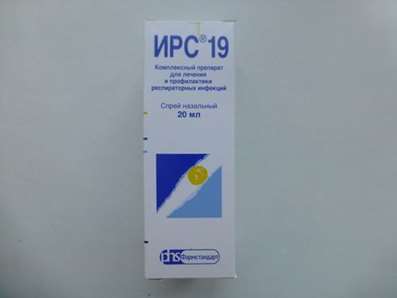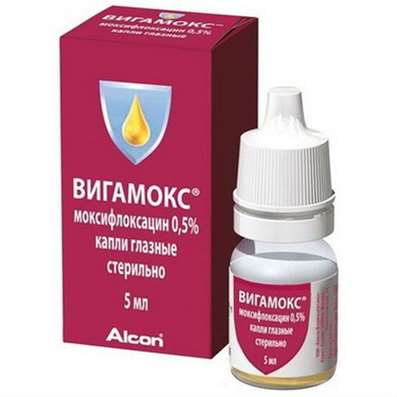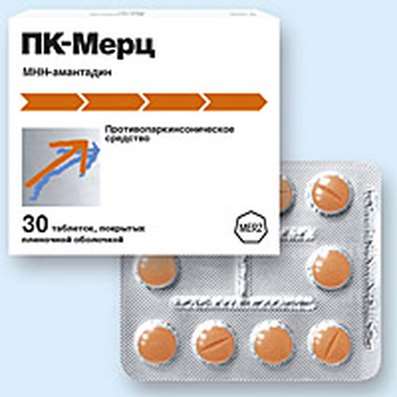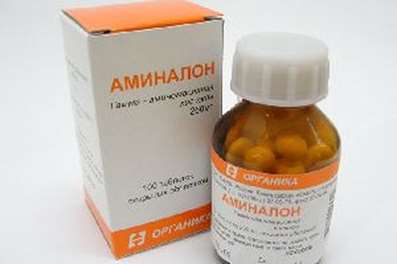Memantine - Dissociative Mind
29 Dec 2016
This substance is widely used for the treatment of various diseases associated with the higher brain functions. In accordance with the register of medicines Russia, memantine is able to fight with Alzheimer's disease, Parkinson's, to treat fatigue, memory loss, and more. Surprised Google also comment on popular queries along with the word "Memantine". So, what is this stuff?
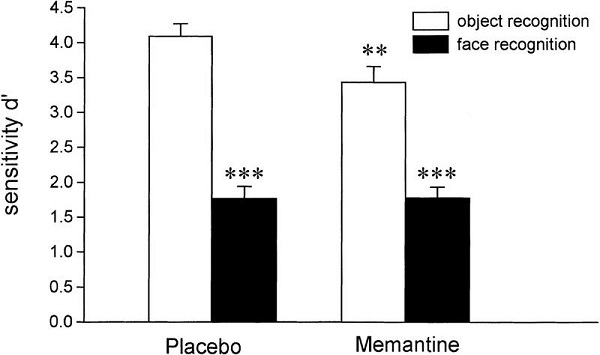
Memantine has appeared in the 60s of the last century. It was created specifically for the treatment of Alzheimer's disease. The drug is like and old, but active research have been started recently. And the peak of popularity was only in 2013, and the total amount of the research since 2008 more than in the history of the drug until 2008.
How does memantine act?
1. Memantine acts as an antagonist of NMDAR. In the old issue about Semax was given a study where mice have lost memory, when they entered the NMDA receptor inhibitor. Anyway, glutamate - signaling accelerator in the brain is also working through this receptor, and it seems illogical unstimulated. What's the point, you ask?
Once we have already mentioned exciting-toxity is when there is over-stimulation of the brain, which is not something that improves memory, but rather kills the brain, nerve cells, in the truest sense. So, if a person has an excessive activity of the glutamate system, it is important to reduce the rate of transmission of nerve impulses. Technically, this can be done in many ways, if corny - to enhance the activity of GABA. You can also like Noopept.
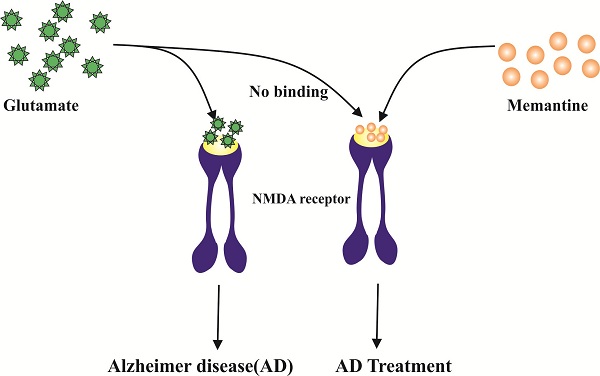
However, there may be a situation that glutamate is working as it should, but the receptors with which it interacts (NMDA and AMPA) is too easy to give in to him. To make it clearer, imagine a car that travels at high speed. And in order to slow it down, you can press on the brake, in this case, the GABA system, and it is possible to weaken the pressure on the gas pedal. "Turning off» NMDA receptors, we slow down our car to a normal rate, which is better manageability. And this means more quality work of the brain.
In medicine, NMDAR antagonists are used mainly for anesthesia. For example, ketamine is used as an anesthetic. This anesthesia is called "dissociative anesthesia", by the way, from the medical term appeared so-called "dissociative". The substances with which try to "shoot up and catch hallucinations" exceeding every conceivable dosage.
2. Memantine restores normal dopamine levels when suppressing drugs. There is evidence that Memantine has a dopamine receptor agonist of the second type (D2). Agonist, then it causes the receptor to work more efficiently.
D2 receptor is mainly responsible for the psychological state. With a low density of these receptors and weak activity, the person becomes prone to alcoholism, drug addiction, depression. At moderately high level - in a good mood, creative thinking, sensitive, sentimental. When overvalued - begin to hear voices. Many antipsychotic drugs dampen dopamine receptor is the second type of person to become less inflated.
3. It acts as an antagonist of serotonin receptor type 3. This information appears in the description of the mechanism of action of Memantine Western counterparts, while in Russia, it is not formally represented. Typically, the receptor antagonists are used to reduce the side effects of the digestive system after chemotherapy.
Memantine and Intelligence
Memantine improves intelligence after brain radiation therapy.
There is evidence of a large study, where Memantine showed positive properties in the treatment of opioid dependence, in particular, it will improve the overall health and intellectual abilities.
In Down syndrome, Memantine works better than a placebo, though the study on mice, although it is far from that of normal animals.
There are studies showing an improvement of memory in rats.
With regards to the possible improvement of intellectual abilities in healthy people have little data. Tell us more about one experiment.
40 healthy volunteers were divided into two groups, one received 30 mg Memantine other placebo. 20 Then they were shown photos of people unfamiliar to them, and 20 objects buildings. After waiting 80 minutes, and were asked to choose from the 80 people / buildings that they remember. Results: Both groups of people remember almost the same with regards to the buildings a little worse there was a group with Memantine.
A couple of studies says anything about memory impairment, or a neutral data on human health.
Memantine course
Drink Memantine healthy person - it's like playing Russian roulette. 5 of 6 did not improve his condition. In any case, read the contraindications.
The dosage of from 5 to 20 mg per day. On doctor's orders, increased to 30-60 mg. The duration is determined by the physician.
Effects of Memantine
Based on the mechanisms of action, will sedation (depending on the dosage), deterioration of intellectual faculties, a slight improvement in sentiment.
Experienced the improvement of mental activity can only people with the disease one way or another affect the central nervous system. Another option - impulsive, explosive people with overactive glutamate system. If you fall asleep on the mega show and yelling out the window, when our hammer, the Memantine is rather blunt!
When receiving doses greater therapeutic, having a little distortion of perception, perceived at an emotional level. Many write about peace and prudence. Memantine in rats increased BDNF concentration and showed a stress-protective effect.
With what Memantine to combine?
Immediately it is worth to say, that you do not accidentally fall into helpless and vegetable state with dangling saliva, Memantine does not combine with any other the NMDA antagonists, or with modulators of GABA. Theoretically interesting bunch with agents acting on acetylcholine and dopamine, but it is not perceived as a call to action!
Bottom Line:
- For the average person with an average activity of the psyche, memantine will be at least useless, though perhaps a more relaxed feel.
- Powered via antagonism of the NMDA-receptor, serotonin receptor type 3, and as an agonist at the dopamine type 2.
- In medicine is taken up to 60 mg, in the first week but not more than 5 mg per day. And it does not combine with other NMDA antagonists or agents which increase GABA!
Good luck!

 Cart
Cart

